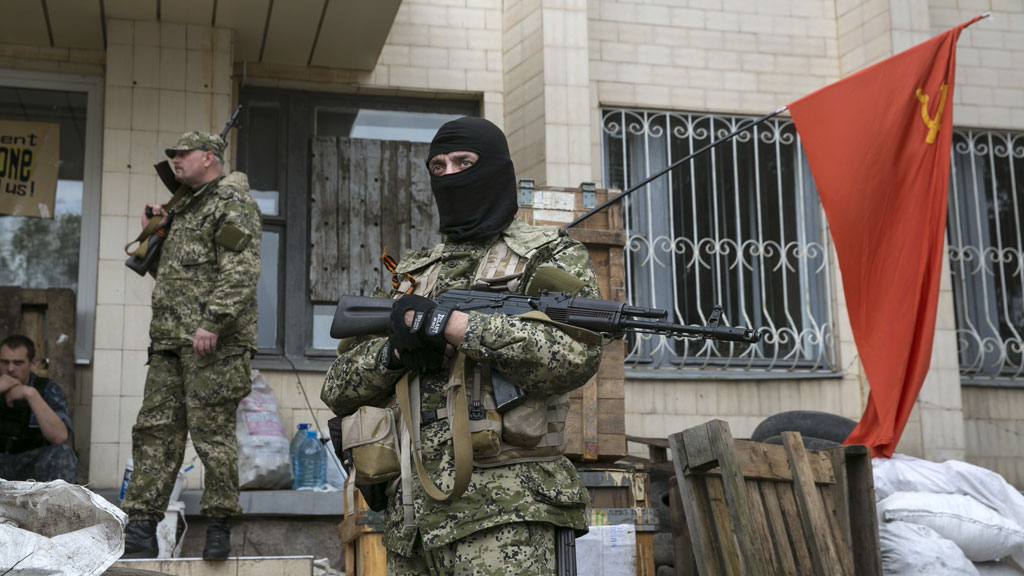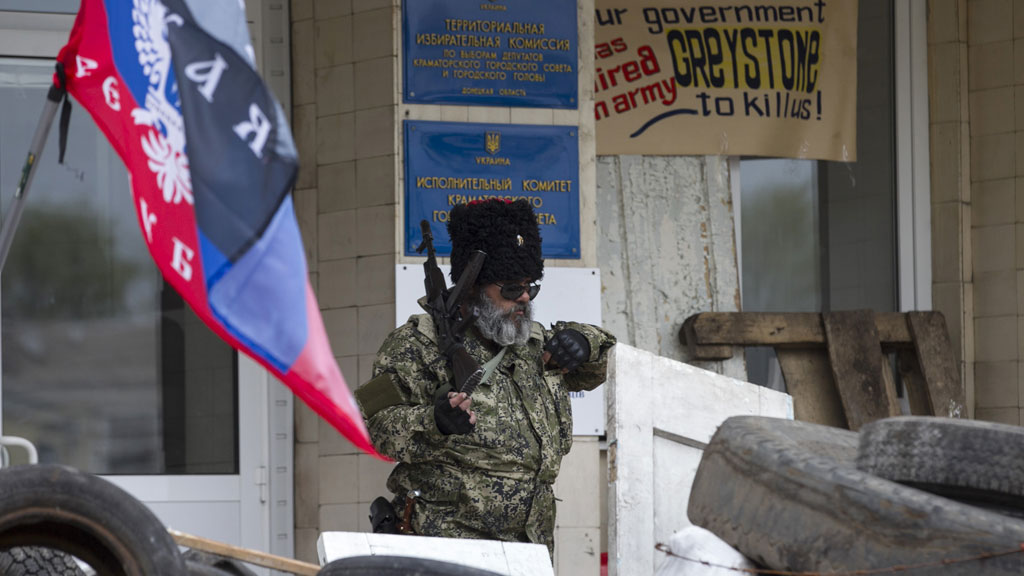Moscow threatens response if Russians attacked in Ukraine
As Kiev announces the end of an Easter truce and re-launches its “anti-terrorist operation” in eastern Ukraine, Russia warns it will retaliate if its citizens are threatened.

The threat by Russia came as US troops were headed to the region and Ukrainan officials ordered a new “anti-terrorist” operation against pro-Russian separatists holding a string of eastern towns.
Ukraine’s First Deputy Prime Minister Vitali Yarema earlier told reporters that officials were “working on the destruction of gangster groups in Kramatorsk, Sloviansk and other cities in the Donetsk and Luhansk regions”.
Russia later issued a warning that it would respond if its interests were attacked in Ukraine, as pro-Kremlin rebels in the restive east of the country braced for a new military offensive by Kiev.
Russia Foreign Minister Sergei Lavrov told Russia Today: “If we are attacked, we would certainly respond. There is no reason not to believe that the Americans are running the show.
“If our interests, our legitimate interests, the interests of Russians have been attacked directly, like they were in South Ossetia for example, I do not see any other way but to respond in accordance with international law,” Mr Lavrov said, referring to a separatist territory in Georgia into which Moscow sent troops in August 2008.
Moscow also said it was “extremely surprised by the distorted interpretation (of the agreement) by the Kiev authorities and the American partners.”
It said that while the Geneva agreement last week called for illegal armed groups to disarm, “Kiev and Washington, as well as several European capitals, continue to insist only on the need for Ukrainian citizens protecting their rights in south-eastern Ukraine to disarm” – a reference to pro-Russian separatists.

“At the same time, they are closing their eyes to continuing provocative actions by fighters from radical right-wing forces,” it said, referring to Ukrainian nationalist groups.
The Russian statement repeated Moscow’s calls for the immediate withdrawal of Ukrainian military units from south-eastern Ukraine and the start of an inclusive dialogue that would embrace all the former Soviet republic’s regions and political forces.
‘Brutally tortured’
Kiev’s decision to resume its security operation in the east was prompted in part by the discovery of two bodies “brutally tortured” in a river near Slaviansk. One resembled Volodymyr Rybak, a member of the same Batkivshchyna party as Ukraine’s acting president.
A video released on a local news site, gorlovka.ua, appeared to show Rybak being confronted by an angry crowd outside the town hall in Horlivka, where he was a councillor.
In the footage, Rybak can be seen being manhandled by several men, among them a masked man in camouflage, while other people hurl abuse.
After several minutes, Rybak appears able to walk away. The Interior Ministry said he was seen being bundled into a car by masked men in camouflage later that day. His body, and that of a second man, was found on Saturday in a river near Slaviansk.
In Slaviansk itself, the militia is holding three journalists, including one US citizen, Simon Ostrovsky, who works for the online news site Vice News.
The separatists say they themselves are victims of violence and persecution by the Ukrainians authorities and illegal armed groups which, they say, support Kiev.
‘Radical Islam’
On Wednesday Tony Blair urged the west to put aside differences with Russia over Ukraine to focus on tackling the threat from radical Islam.
Mr Blair said: “The threat of this radical Islam is not abating. It is growing. It is spreading across the world.
“It is destabilising communities and even nations. It is undermining the possibility of peaceful co-existence in an era of globalisation.
“And in the face of this threat we seem curiously reluctant to acknowledge it and powerless to counter it effectively.”
